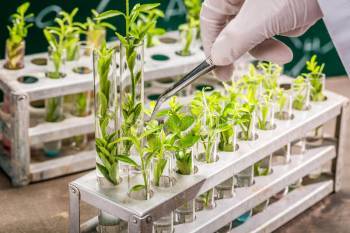NEW DELHI, 1 June 2020: The importance of agriculture to India needs no mention. Although not the number one revenue generator for the country but more people in India depend on agriculture than any other sectors. The uniqueness of the region lies in agriculture being more than just a profession, it provides sustenance and livelihood and is entwined with social and cultural beliefs.
Ironically, agriculture has seen the least modernization in India than any other sector. There are many aspects that can be modernized in India and be up to date with the rest of world such as mechanization, post-harvest, logistics but everything starts with a better seed.
Plant breeders in India improving crops
Dr. Shivendra Bajaj, Executive Director, Federation of Seed Industry of India (FSII) said that plant breeders in India have been improving crops and keeping up with the demand by developing new varieties either with the existing gene pool within the country or by bringing new germplasm from across the world and testing its suitability for India either as such or by crossing with existing Indian germplasm.
The later part is very important to understand that we are constantly bringing new germplasm from outside India to improve our existing varieties. The breeding tools available to scientists have also undergone a major overhaul over the last few years with some tools only being available to Indian scientists.
However, we must acknowledge and accept that developed countries are developing new and better tools that will accelerate their plant breeding process by leaps and bounds.
It is also important to note that the regulators in these countries are also keeping up pace with the developments to make the latest products available to the farmers.
Precision, ease of the technology saves on time, labour
Among the new major breakthroughs, gene editing is very promising new plant breeding method that allows the breeders to make specific, precise modifications without the need for several generations of backcrossing, in contrast to conventional breeding in which modifications are achieved with crossing of two plants and then undergoing multiple generations of backcrossing to clean the undesired genes.
The precision and ease of the technology saves on time, labour and cost of introgressing multiple traits together. Since the costs associated with gene editing is low, several smaller companies will be able to invest in this breeding tool and develop varieties with new traits.
However, the success of gene editing lies in the hands of the regulators, if the traits developed involvement of gene editing are heavily regulated, then the costs and time associated with de-regulation will make the development of new varieties through gene editing unaffordable to smaller companies.
India to become a global seed hub
A practical approach by regulators such as determination that if the product developed through gene editing which is nearly indistinguishable to those developed through conventional or mutation breeding will not be regulated will highly encourage the investments in research.
Another aspect that needs some attention is the seed trade; Indian government has been taking several steps to make India a global seed hub.
However, if Indian policies on gene editing are not aligned with the rest of the world, seed production and movement will happen through the countries which have similar policies on seeds produced through gene editing and India will miss out on a major source of employment and revenue generation.
Policies aligned with rest of the world will not only enable Indian plant breeders to develop new varieties and enable farmers to increase production, it will also establish India’s leadership in innovation in the region.
Image credit: geneticliteracyproject.org




















